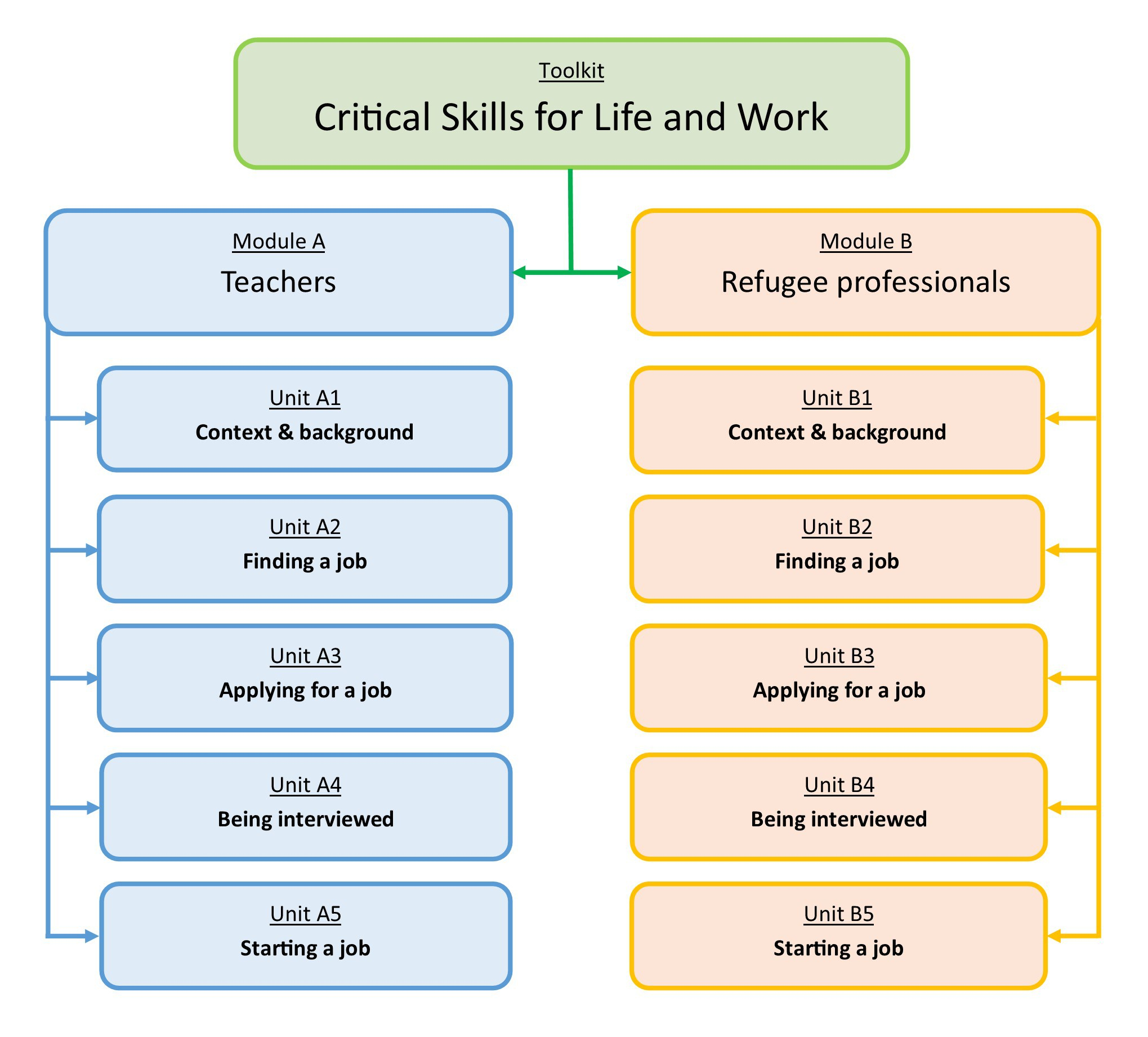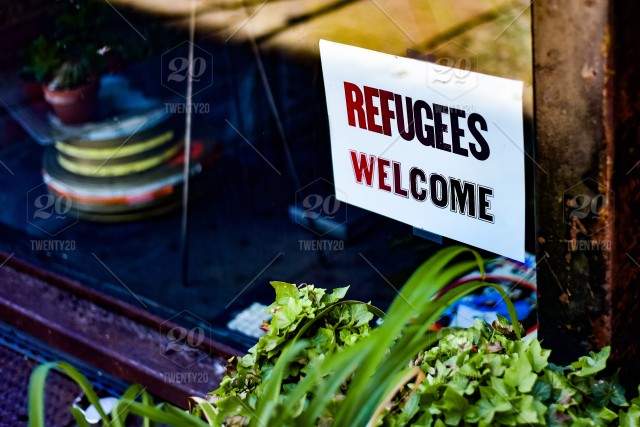This post is a brief overview of Critical Skills for Life and Work (CSLW), one of the last projects in which I was involved at the University of Graz. Although the project has been running since September 2017, I have avoided discussing it in this space, in order to give us time to work out various conceptual and practical issues before inviting critical discussion. After a somewhat challenging birth process, I think that the project has now taken a reasonably good shape, and I feel that it would be a wasted opportunity if I did not share my perspective before I move on.
The CSLW project
The Critical Skills for Life and Work project is a response to the refugee crisis in Western Europe, and it aims to assist the professional integration of highly skilled migrants and refugees, who often face insurmountable challenges finding gainful employment. Most of the problems they face are, of course, systemic: they stem from the structure of the labour market, possible documentation irregularities, and prejudicial attitudes in the host countries. In our capacity as language educators, we are not really able to do much about these issues, but what we can do, which is potentially beneficial, is help the refugees develop the professional intercultural communication competences that will maximise their opportunities for success, where such opportunities present themselves.
The project, which is funded by the European Union ERASMUS+ framework, is a collaboration of Newcastle University and the Action Foundation in the UK, the Fryske Academy in the Netherlands, and the University of Graz. Locally, it is coordinated by Prof. Sarah Mercer, with assistance from Prof. Beth Erling, myself, the enthusiastic Paige Baralija and the indefatigable David Leersch. In July 2018, Sonja Babić joined the team to replace Paige Baralija, after her resignation.

Who is this project for?
The main beneficiaries of Critical Skills for Life and Work are ‘highly skilled refugees’, a term which is used as a rough synonym to ‘professionals’. However, this seemingly straightforward designation is surprisingly hard to operationalise. An obvious question is whether the term refers to individuals who are highly skilled by employment, highly skilled by competence, highly skilled by education, or any combination of the above. In practical terms, there was broad agreement that our definition includes, say, surgeons and engineers who had to relocate because of war, but could it also include professional athletes or law students whose career trajectories were interrupted? And that did not even begin to address the difficult questions like: Which skills do we value? By whose standards? What exactly is the threshold one needs to meet to be ‘highly skilled’, and is it the same across contexts? In retrospect, it seems that additional discussion in the formative stages of the project would have been helpful, and it is perhaps unfortunate that an inefficient communication structure and exaggerated concerns about ‘tone’ stifled this discussion at the stage when it could have made a difference.

In a series of emails, and most recently at a steering group meeting that took place in Graz, I insisted on two points. Firstly, our definition should be sensitive to the political implications of distinguishing between ‘highly skilled’ and ‘unskilled’ immigrants. My main concern was that we had to take care not to reproduce and ratify the unacceptable view that refugees are valued only in terms of their potential economic contributions. Secondly, I argued that, whatever criteria we used, these should be unambiguous, transparent and measurable. Rather than reinvent the wheel, I proposed adopting the International Standard Classification of Occupations (ISCO-08) scheme, which is used by statistics agencies worldwide, and therefore had the added benefit of ensuring comparability across the three national sites of research, and multiple countries of refugee origin. The ISCO-08 scheme draws on multiple criteria (formal education, typical tasks, amount of experience and training required) to define four skill levels, and defines ‘professionals’ (level 4) as having tertiary education, being mainly involved in intellectual work, and working in contexts where high literacy and numeracy skills are essential.
It seems that I was not as persuasive as I could have been in making these points, and a decision was reached, instead, in favour of a deliberately ambiguous definition. I believe that this was due partly to a collective reluctance to engage with thorny issues, and partly due to ideologically driven determination to include teachers in our definition of ‘highly-skilled’ refugees (a cynic might argue that as a teacher training unit, we also had a vested interest in developing a definition that could help with followup funding). My objections notwithstanding, the advantage of this approach is that the CSLW materials can, in principle, cater to the needs of an even wider audience than my definition would suggest – in fact, they are addressed to anyone who feels that they may benefit from them.
The CSLW toolkit
The main deliverable of the Critical Skills for Life and Work project is a toolkit, or set of teaching and learning materials for developing the professional intercultural communication skills of highly skilled refugees. The toolkit consists of two parts, or ‘modules’: one is (to be designed) for self-study and is addressed to refugees themselves; the other is designed for classroom use and is (to be) written with a teacher audience in mind. Each module comprises five units, which focus on different stages of professional reintegration, namely (a) understanding the context, (b) finding a job, (c) applying for a job, (d) being interviewed and (e) starting a job. The activities that make up each unit are the same, or similar, but they are presented with different scaffolding, to cater to the needs of both refugees working autonomously, and teachers who work with refugees. A key principle underpinning the design of the toolkit is flexibility: units can be accessed sequentially or in any other order that is appropriate, and the activities themselves can be used for self-study, differentiated instruction or whole-class teaching.

The language of the toolkit was a matter of considerable debate. From a pragmatic point of view, it made most sense to write the activities in English. On the other hand, one might argue that the refugees would benefit most from additional exposure to the dominant languages of their host countries; and, of course, there are good arguments for challenging the hegemonic role of English. Two points that I was especially keen on incorporating in our rationale were:
- The users of the toolkit should not be treated as if they were linguistically deficient. I felt that it was important to acknowledge that highly skilled migrants must – by definition- be highly literate in the language(s) of their country of origin, and most likely English as well, since this is the lingua franca in international professional communities. I insisted that such pre-existing linguistic capital would have to be acknowledged.
- The toolkit should aim to foster international mobility, not hinder it. This, to me, meant that the primary aim should not be to teach local languages, even though these would doubtless be useful for settling in a particular place. Rather, the priority should be to develop ‘language for mobility’ skills, i.e., skills that would help refugees in any context in which they might find themselves in the future.
Our final decision was based on the assumption that this toolkit aimed to foster intercultural skills, not language development, and therefore a plurilingual approach was the best way forward. In practical terms, this meant that most input would be in English, but the activities would be designed in a way that encouraged communication in any language that was situationally appropriate, and users would be required to make connections with the local discourses. For example, in a typical activity users might be shown an English CV as a prompt, helped by their teacher (possibly in the local language) to locate a similar discipline- and country-specific CV, and discuss the ways in which it is similar and different from the prompt and the CVs they produced in their countries of origin (using English, the local language, their L1s, or – most probably – by mixing these languages). The outcome of such an activity would be a heightened awareness of the context-specific features of a CV, as well as enhanced ability to make themselves understood, using all the linguistic resources in their repertoire.
Where can you find out more about CLSW?
For better or for worse, my own involvement in the project is now at an end, which means that this is probably the last time I will write about it in this space.
However, if you are interested in following its progress, you may want to check out the project website, where updates will be posted regularly. The plan is to have the toolkit ready by February 2019, at which point it should be available for download from the website.
There will also be a series of multiplier events and workshops, which will take place in Graz, Newcastle and the Netherlands in early 2019. If you are around, I am sure the remaining project members will be delighted to welcome you.

Leave a Reply